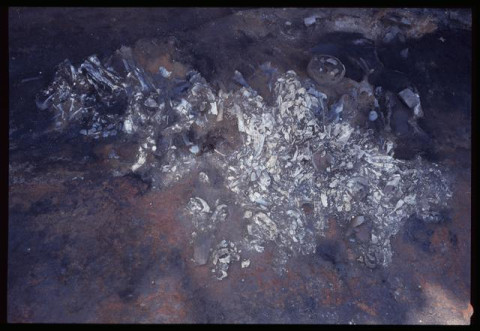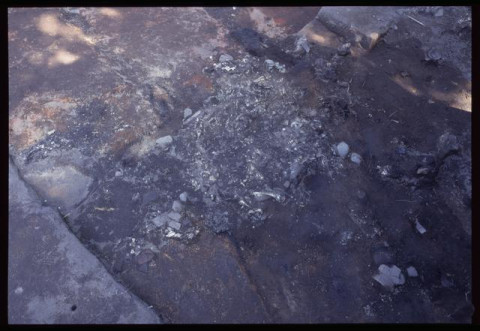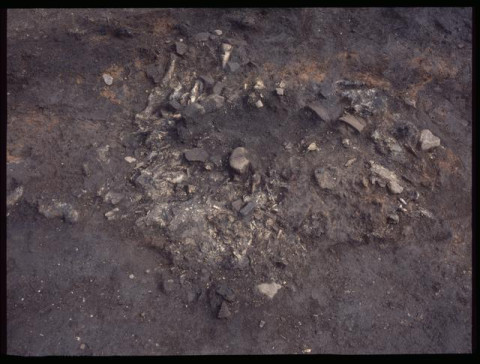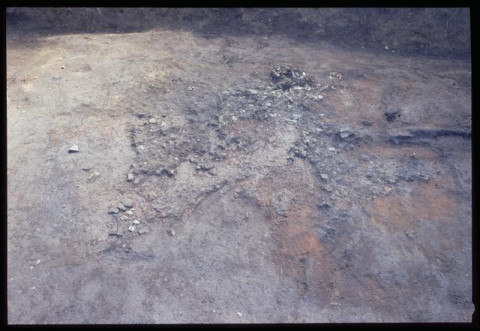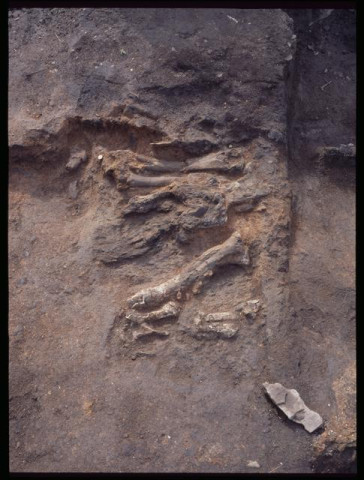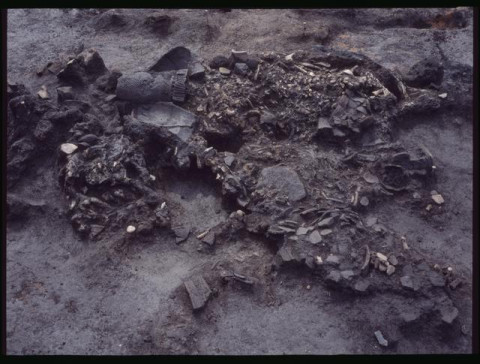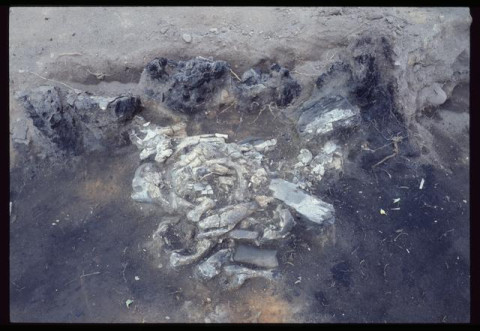7a号竪穴 骨塚a
No.12
報告書の図版番号/Plate No. of the report:Front1-2
解説:骨塚とは、竪穴住居内の奥壁部にクマの頭骨などを積み上げたオホーツク文化特有の遺構で、いわば「祭壇」といえる。この骨塚は道内最大規模のもので、クマ110体、エゾシカ69体、タヌキ30体、キツネ26体などの動物骨が頭骨や顎骨を中心に検出された。写真上が奥壁側。
comment:Bone mound, which is a pile of bones such as brown bear (Ursus arctos) skulls, is a typical feature of Okhotsk culture. Shown here in the corner opposite the opening of the U-shaped clay floor, the mound could be considered as an “altar.” This bone mound is the largest to have been found in Hokkaido, and animal bones, such as the craniums and jawbones of brown bears 110, Hokkaido deer (Cervus nippon yesoensis) 69, raccoon dogs (Nyctereutes procyonoides) 30, and foxes (Vulpes vulpes schrencki) 26 were found. The upper part of the photograph shows the innermost area of the pit house.
-
部局人文社会系研究科・文学部
-
所蔵者東京大学大学院人文社会系研究科附属北海文化研究常呂実習施設
-
提供者東京大学文学部「人文学における国際的地域・社会連携の推進」プログラム(東京大学未来社会協創推進本部登録プロジェクト)
-
メディア(画像等)利用条件http://www.l.u-tokyo.ac.jp/t_chashi/jp/explanation4.html
-
メタデータ利用条件http://creativecommons.org/licenses/by/4.0/

コレクション名
-
トコロチャシ跡遺跡群発掘調査写真デジタルアーカイブ
常呂実習施設が所蔵する、北見市の史跡「トコロチャシ跡遺跡群(史跡常呂遺跡)」の発掘調査内容を記録した写真を公開しているサイトです。
